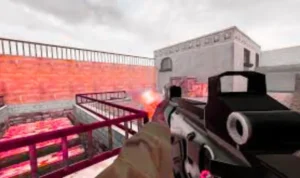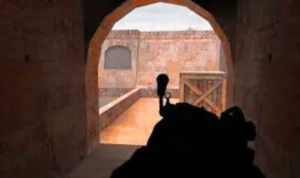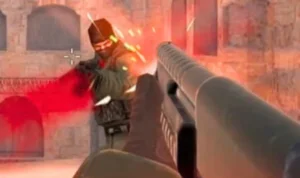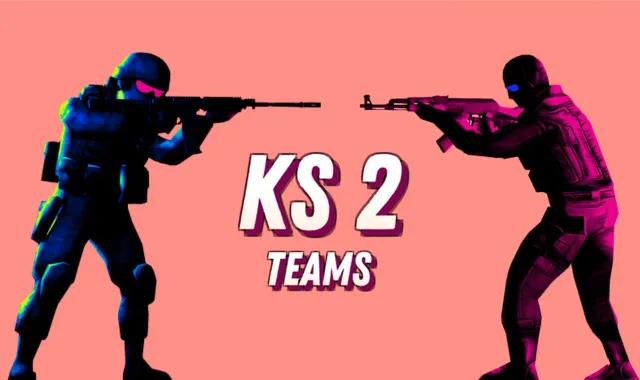Modern classrooms no longer rely only on chalkboards and memorization. KS 2 teams Across the UK, teachers are transforming lessons into adventures — where curiosity, laughter, and teamwork guide the way. This revolution in education is powered by KS2 Teams Games, creative activities built for pupils aged 7 to 11 years.
At this stage of learning, children are full of energy and imagination. The KS 2 Teams Game turns that enthusiasm into achievement. Instead of sitting quietly through worksheets, students collaborate, compete, and celebrate victories together — much like players on a sports field.
From solving maths puzzles against the clock to acting out vocabulary charades, every challenge becomes a “learning battle.” These games merge play with purpose, letting children grasp academic concepts while building empathy, confidence, and resilience.
The result is powerful: classrooms buzz with excitement, and lessons stay in young minds far longer. Let’s explore how these team-based experiences are reshaping primary education.
What Is the KS 2 Teams Game?
The KS 2 Teams Game is an interactive, team-oriented learning model designed for pupils in Years 3 to 6. It’s both a philosophy and a set of tools that combine academic instruction with playful competition.
In essence, it transforms ordinary subjects into cooperative missions. Students are divided into small teams — each given a name, color, or mascot — and face a series of educational challenges across core subjects like English, Mathematics, and Science.
Points are earned for accuracy, creativity, and teamwork rather than just right answers. Teachers act as facilitators, guiding teams, rewarding fair play, and ensuring equal participation.
The beauty of the KS 2 Teams Game lies in its adaptability. It can be played offline through classroom quizzes or physically active tasks, or online using platforms such as Kahoot, Quizizz, Blooket, and Microsoft Teams for Education.
At its heart, it’s not about competition alone — it’s about shared learning. Every student contributes unique strengths to help their group succeed, mirroring real-world collaboration and communication.
How the KS 2 Teams Game Works
Implementing a KS 2 Teams Game follows a lively rhythm that keeps pupils engaged from start to finish:
- Team Formation: The teacher groups pupils into mixed-ability teams. Each team chooses a fun name — “Math Wizards,” “Reading Rockets,” or “Eco Explorers.”
- Challenge Selection: Teachers pick subject-specific missions: solving a fraction riddle, decoding grammar clues, or completing a science scavenger hunt.
- Gameplay: Each mission comes with time limits and scoring criteria. Teams debate, cooperate, and compete to finish first.
- Scoring & Feedback: Points are awarded for correct answers, creativity, and positive teamwork.
- Leaderboard Moment: The excitement peaks when the scoreboard appears. Cheers echo as teams see their progress.
- Reflection Round: After each game, pupils discuss what worked, what didn’t, and how they helped one another — nurturing self-assessment and empathy.
Imagine a Year 5 class racing to build the tallest tower using recycled materials while applying measurement formulas. Laughter fills the room, rulers clatter, ideas spark. The lesson? Mathematics, environmental awareness, and teamwork — all in one unforgettable session.

Educational Goals Behind KS 2 Teams
Every KS 2 Teams Game aligns closely with the UK National Curriculum. Its purpose stretches far beyond entertainment.
Academic Mastery: Games reinforce key skills — number fluency, grammar rules, scientific reasoning — through repetition disguised as play.
Cognitive Growth: Time-based challenges sharpen focus and problem-solving.
Social Development: Working in groups fosters listening, sharing, and leadership — essential soft skills for future learning.
Emotional Well-Being: Friendly rivalry builds resilience; losing gracefully is as valuable as winning.
Teachers notice that students once hesitant to speak become active contributors during these activities. The team environment provides safety — no child feels singled out or judged.
For educators, KS2 Teams Games also make classroom management easier. When learning feels like play, discipline issues fade. Motivation replaces pressure. Ultimately, these games prepare children not only for tests but for life itself — teaching collaboration, adaptability, and respect in ways traditional lectures rarely achieve.
KS 2 Teams Game Benefits at a Glance
| Feature | Description | Student Impact |
| Teamwork | Encourages coordination and shared goals | Builds communication & cooperation skills |
| Learning Through Play | Combines curriculum aims with fun | Increases retention & enthusiasm |
| Motivation | Uses points & rewards | Boosts engagement & self-confidence |
| Inclusivity | Involves every learner | Reduces anxiety & promotes equality |
| Creativity | Inspires new ideas | Strengthens problem-solving abilities |
Real-World Examples of KS 2 Teams in Schools
Across the UK and beyond, schools are embracing KS2 Teams Games with impressive success.
At Greenfield Primary in Surrey, Friday afternoons are devoted to “Math Battle League.” Teams compete through mental-math lightning rounds. Teachers report a 20 percent improvement in arithmetic fluency.
Meanwhile, St. Mary’s Academy introduced a “Science Quest Week” where teams design small experiments to demonstrate energy transfer. Pupils not only learn physics but also presentation skills.
Internationally, educators in Canada and Singapore have adapted the concept using digital quizzes through Kahoot or Quizizz. These games allow cross-class competitions and even international exchanges.
Parents notice changes too: children rush home eager to explain what their team accomplished. Homework transforms from a burden to a bragging right.
The common thread across these stories is joy — joy in learning, in collaboration, and in discovery. KS 2 Teams Games succeed because they blend excitement with education.
Digital Platforms Supporting KS 2 Teams

The rise of educational technology has supercharged the KS 2 Teams concept. Teachers now use interactive platforms that make hosting games effortless:
- Kahoot! – A quiz-based app where students answer questions live on their devices.
- Quizizz – Offers homework-style quizzes with instant feedback and leaderboards.
- Blooket – Gamifies quizzes with power-ups, coins, and fun avatars.
- Microsoft Teams for Education – Enables collaborative document work, digital badges, and class tournaments.
- ClassDojo – Builds positive behavior tracking into team points.
These platforms make hybrid learning possible. Whether students are in the classroom or learning from home, they can participate equally.
Children describe these sessions as “like playing video games — but you actually get smarter.” Teachers, on the other hand, love the automatic grading and data insights that help them tailor lessons to each learner’s progress.
Why the KS 2 Teams Game Is Important for Modern Learning
Today’s learners grow up surrounded by screens, instant feedback, and interactivity. Traditional lectures rarely hold their attention for long. The KS 2 Teams Game bridges this gap between entertainment and education.
When lessons feel like games, students enter a “flow state.” They forget they’re studying — yet absorb more information. Research by educational psychologists confirms that gamification increases engagement, intrinsic motivation, and memory retention.
The emotional connection matters too. Competing kindly, cheering for teammates, and celebrating small wins nurture empathy and belonging. These experiences reduce classroom stress and foster mental health.
Moreover, KS 2 Teams Games democratize education. Children who struggle academically may excel as strategists, designers, or presenters within their teams, earning recognition beyond grades.
Integrating KS 2 Teams Games into Daily Lessons
Teachers often ask: “How can I add team games without losing syllabus time?” The answer lies in micro-integration — weaving short game moments into existing lessons.
Morning Warm-Ups: Begin the day with a five-minute “Quick Quiz Battle” reviewing yesterday’s topic.
Mid-Lesson Bursts: When energy dips, launch a mini challenge: solve a riddle, complete a sentence chain, or find shapes hidden around the room.
Friday Finales: Dedicate the last period each week to a grand team competition covering the week’s learning.
To keep things balanced, rotate roles within teams: leader, writer, timekeeper, reporter. This ensures equal participation and builds varied skills. As confidence grows, teachers can host inter-class or even inter-school tournaments, turning learning into a community celebration.
Emotional and Social Impact on Children
Beyond grades and test scores, KS 2 Teams Games nurture the whole child.
Students learn to manage emotions under pressure — joy of victory, frustration of near misses — within a safe, supportive environment. They gain communication confidence, expressing opinions respectfully and listening to peers. Team identity gives them a sense of belonging, particularly valuable for shy or new students.
Psychologists note that play lowers cortisol (stress hormone) and boosts dopamine (motivation chemical). That’s why classrooms adopting these games often notice calmer behavior and fewer conflicts.
Parents observe positive spill-overs at home too: children become more cooperative with siblings and more open about school life. By merging intellect with emotion, KS 2 Teams Games help create balanced young individuals ready for both academic and social challenges ahead.
Teacher’s Guide to Creating a KS 2 Teams Game
Creating a KS2 Teams Game requires imagination more than technology. Here’s a simple framework educators follow:
- Choose a Learning Goal: e.g., multiplication practice, vocabulary review.
- Design Team Tasks: Turn objectives into fun challenges — word hunts, timed puzzles, or creative builds.
- Set Rules & Rewards: Define fair-play guidelines and transparent scoring.
- Gather Materials: Whiteboards, flashcards, or tablets.
- Run and Reflect: Observe participation, tweak difficulty, celebrate teamwork.
Teachers emphasize that even small competitions can transform mood instantly. The class shifts from passive to participatory within minutes. The most successful games include humor, surprise twists, and short feedback sessions where pupils share what they learned.
Success Stories from Teachers
Mrs. Hughes, Year 4 Teacher, Manchester: “My students used to groan at grammar lessons. Now, with our weekly ‘Sentence Sprint,’ they beg for extra rounds. Even reluctant readers join in.”
Mr. Patel, Head of Science, Leeds: “During our Energy Quest, I watched quiet students become team leaders. One child who rarely spoke ended up explaining the experiment to the entire class.”
Miss O’Connor, Primary Coordinator, Bristol: “Behaviour incidents dropped dramatically once we introduced team points. The kids police themselves to keep their teams on top.”
These testimonials echo a simple truth: when education feels like a game, motivation becomes natural. Teachers no longer fight for attention — students volunteer it willingly.
Future of KS 2 Team-Based Learning
Looking ahead, KS 2 Teams Games are evolving with technology:
Augmented Reality (AR) will soon let pupils solve geography puzzles on virtual maps or explore 3D ecosystems.
Artificial Intelligence (AI) can personalize challenges for each learner’s pace.
Virtual Classroom Tournaments may connect schools across countries, turning global collaboration into a daily experience.
As educational systems emphasize holistic growth, KS2 Teams Games are set to become a standard, not an experiment. The classroom of the future will sound more like a playground — filled with laughter, ideas, and teamwork.
FAQs
Q1. What age group is KS 2 Teams Game designed for?
Ans: The KS 2 Teams Game is specially designed for students aged 7 to 11 years, covering Years 3 to 6 in the UK primary education system. It supports their learning needs through engaging, age-appropriate games that make lessons exciting and interactive.
Q2. Can KS 2 Teams be played online?
Ans: Yes. Many schools use digital platforms like Kahoot, Quizizz, and Blooket to run KS2 Teams Games virtually. Students can participate from classrooms or even at home, ensuring collaboration and competition remain lively, regardless of location.
Q3. Does the KS 2 Teams Game improve academic results?
Ans: Absolutely. Gamified learning keeps students motivated and helps them retain information better. By turning lessons into challenges, the KS 2 Teams Game enhances focus, recall, and conceptual understanding, making study time both effective and enjoyable.
Q4. Is it suitable for all subjects?
Ans: Yes. Teachers adapt KS 2 Teams Games to fit every subject — from Maths puzzles to Science quizzes and English vocabulary challenges. It’s flexible enough to make any topic fun, keeping learners active and connected with the material.
Q5. What are the main benefits for teachers?
Ans: Teachers benefit through higher engagement, fewer discipline issues, and improved teamwork among pupils. The KS 2 Teams model helps educators observe skills like communication, leadership, and problem-solving beyond traditional grading methods.
Q6. How do KS 2 Teams Games help with teamwork and social skills?
Ans: These games encourage pupils to communicate, cooperate, and solve problems together. Students learn to celebrate others’ successes, handle challenges gracefully, and value every team member’s contribution — skills that extend beyond the classroom.
Q7. Can KS 2 Teams Games be customized for special learning needs?
Ans: Yes. Teachers can easily adjust the difficulty, timing, and structure of each challenge. This flexibility allows children with diverse learning abilities to participate equally, making KS 2 Teams Games inclusive, supportive, and confidence-building for all learners.
Final Thoughts

The KS 2 Teams Game proves that education thrives where joy exists. By blending play, teamwork, and purpose, it changes classrooms into communities where every child feels valued. When students collaborate, laugh, and compete kindly, they don’t just remember facts — they remember feelings. Those feelings become the foundation of lifelong learning.
For teachers, these games are a gift: less stress, more smiles, and measurable academic growth. For students, they’re adventures that turn lessons into stories worth retelling. In a world that demands creativity and cooperation, KS 2 Teams Games are more than classroom tools — they are blueprints for the future of education.
